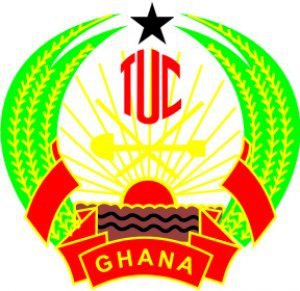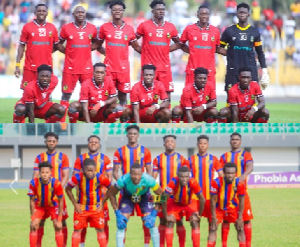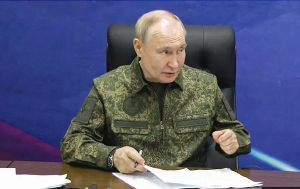The Trades Union Congress (TUC) has said that the current state of Ghana’s development calls for radically different economic policies from those pursued by countries that have achieved the basic necessities of life.
It said the International Monetary Fund-sponsored neo-liberal economic policy framework would never work at this stage of the country's economic development, adding “It is our view that development cannot be achieved through market fundamentalism being professed by the IMF.”
This is contained in the speech of the Secretary-General of the TUC and delivered by Mr. Ibrahim Adam Sallo, Northern Regional Secretary of the TUC, to mark this year’s May Day celebration in Tamale on Thursday.
Various unions under the TUC in the region marched holding placards demanding better working environment and living wages.
Mr. Sallo said, “Organized labour believes that overcoming our development challenges requires a skilful interplay of both the visible hand of government and the invisible hand of the market.”
He said the country’s economy had been seriously weakened and failing, and not working for the majority of the people, adding, “Times are hard and getting harder for ordinary Ghanaians.”
He listed some of the challenges as under-developed infrastructure, rudimentary technology, exportation of primary products, high utility tariffs, increasing inflation and the bulk of the workforce trapped in low productivity employment in agriculture and services.
He stressed the need to rescue and rehabilitate all state institutions and place the state at the forefront of national development calling on the country not to sign the Economic Partnership Agreement in its current form.
Alhaji Limuna Mohammed Muniru, Northern Regional Minister, who read the President's address, said “Many of our current challenges are precisely because of the apparent disconnect between our newfound middle-income consumption habits and our low-income productivity capacity.”
Alhaji Muniru said Ghana became a middle-income country rather suddenly, hence the current challenges, adding, “Government has embarked on an agenda of economic and social transformation that will bring our institutions of policy making and development management in line with those of a lower middle-income country and ultimately to place them in line with those of an upper middle-income country.”
Awards, including mobile phones, laptop computers and fridges were given to selected members of various unionized bodies in the region.
Regional News of Monday, 5 May 2014
Source: GNA













